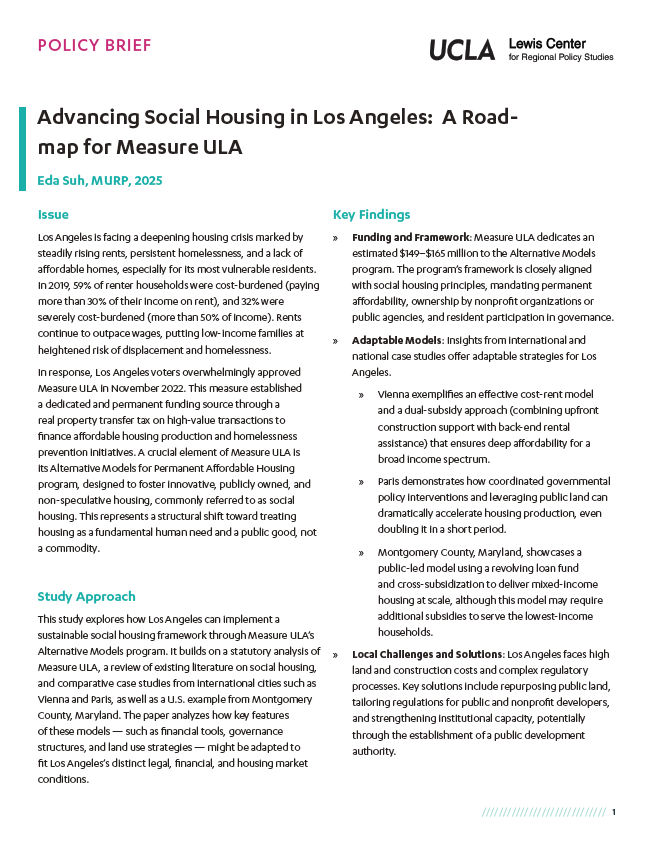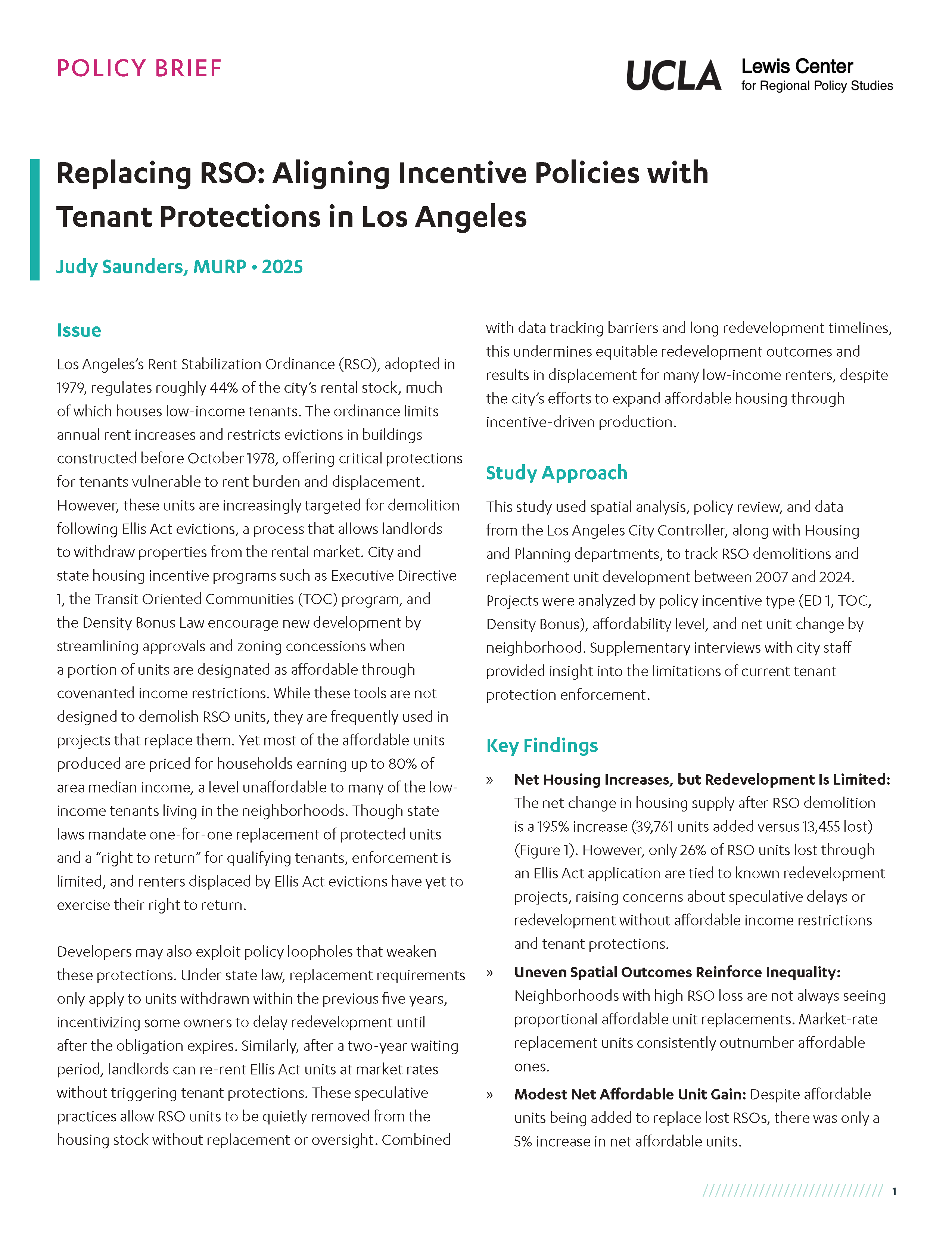Achieving Fair Housing
People of color and other marginalized groups continue to face unequal access to housing. The Fair Housing Act of 1968 was a landmark effort to combat housing discrimination, but more than 50 years later it has yet to realize its full promise. This is particularly true of its commitment to “affirmatively further fair housing” (AFFH): to proactively foster more inclusive and less segregated communities, and to reverse the legacies of past racially discriminatory laws, policies, and actions.
California has incorporated fair housing mandates into its statewide housing planning process, but questions remain about how to encourage cities to allow multifamily housing in their highest opportunity neighborhoods, how to deliver the substantial affordable housing needs in many communities, how to promote equitable access to social and financial capital, and how to engage in planning and community development in ways that allow existing communities to benefit from change. Meeting state and federal fair housing goals depends upon effective policy design, implementation, and enforcement.
The Randall Lewis Housing Initiative is helping answer these and other AFFH questions in California, studying reform and implementation of state fair housing programs including the Regional Housing Needs Allocation (RHNA) and housing element update process, and their impact on the supply and location of multifamily and deed-restricted affordable housing.
Other Research Areas
Publications
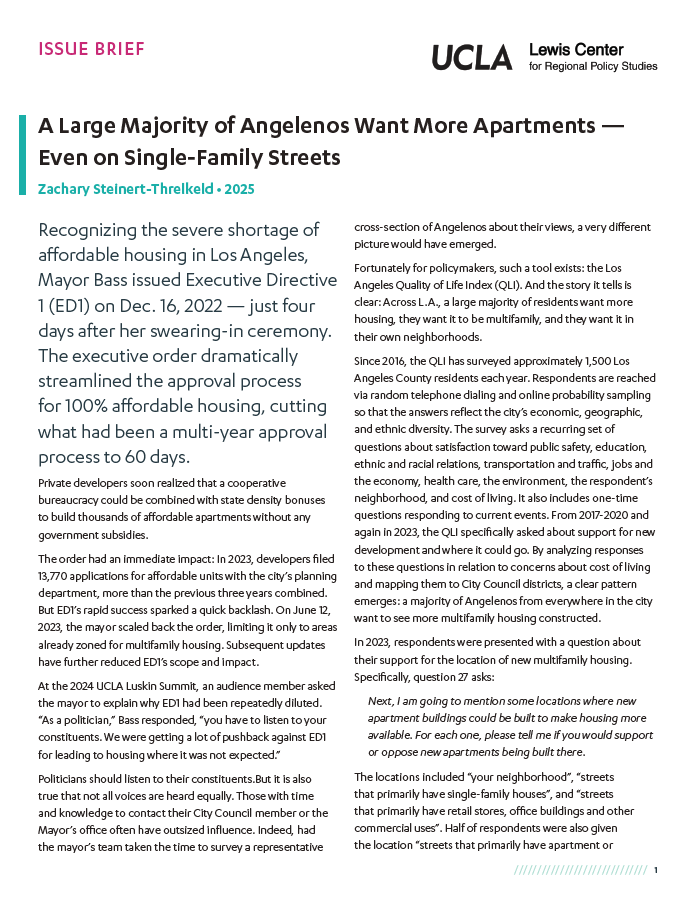

Brief • 2025
A Large Majority of Angelenos Want More Apartments — Even on Single-Family Streets
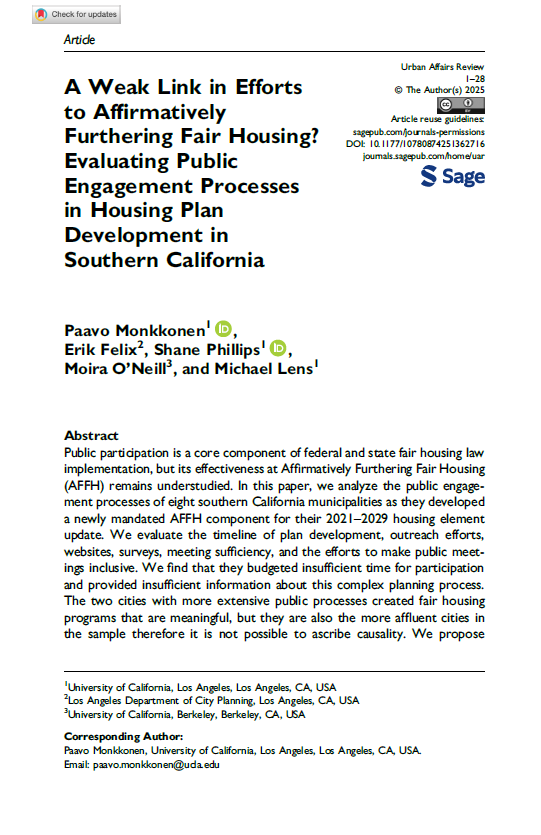

Journal Article • 2025
A Weak Link in Efforts to Affirmatively Furthering Fair Housing? Evaluating Public Engagement Processes in Housing Plan Development in Southern California
Projects
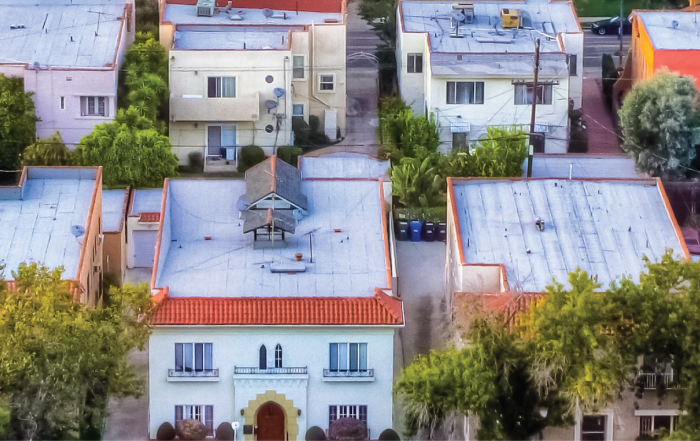
Housing Initiative | 2022
More than 50 years after the passage of the Fair Housing Act, households of color and other marginalized groups continue to face unequal access to housing. This two-year project will look into California’s progress in reversing long-standing patterns of segregation.

Housing Initiative | 2021
Following the 2017 passage of Assembly Bill 686, the state of California has perhaps the most expansive approach to Affirmatively Furthering Fair Housing (AFFH) in the country. This project assesses the impact of California’s implementation and enforcement of AFFH on local planning processes.
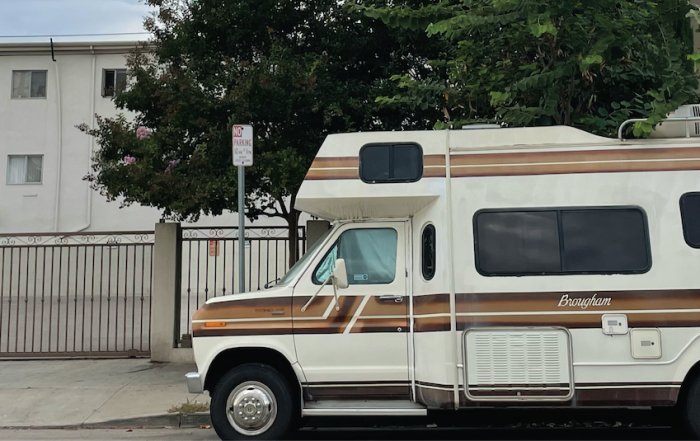
Access to Opportunities, Housing Initiative | 2022
Thousands of people shelter in vehicles as makeshift housing every night in Los Angeles. Vehicle living is not ideal for those who live in vehicles nor for cities, many of which have responded by enacting ordinances to make it illegal or difficult to sleep in vehicles.


